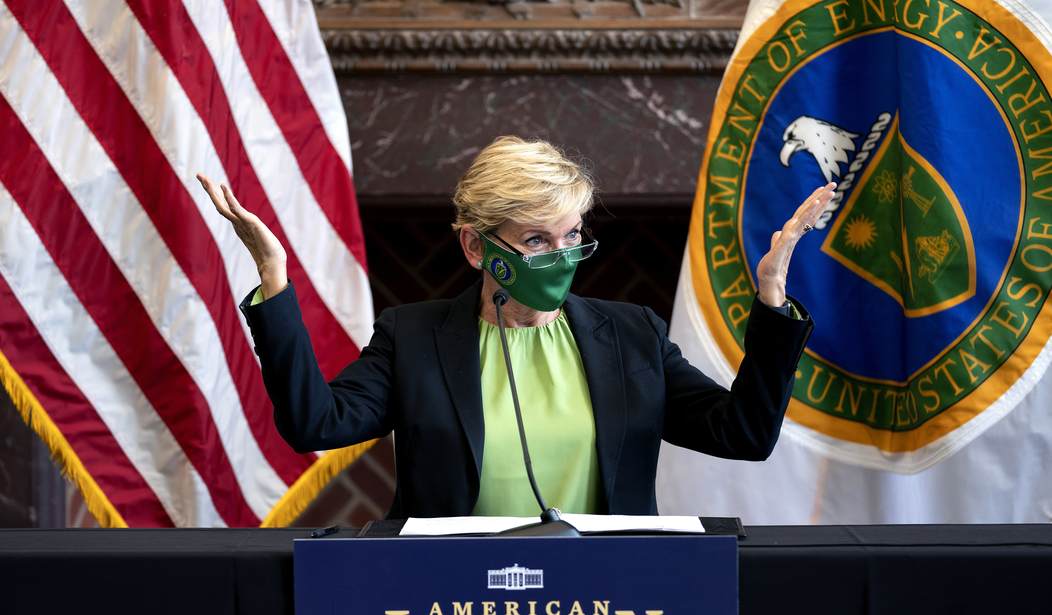After attempts to ban gas stoves burned such proposals' Democrat proponents and proposed new federal vehicle efficiency standards seek to force costs even higher, the Biden administration is now going after (drumroll please) ceiling fans. Republicans in the House of Representatives, however, are not fans of the proposal due to the impact it looks to have on America's small businesses.
In a new letter to the U.S. Department of Energy and its leader Secretary Jennifer Granholm, members of the House Small Business Committee pointed out the problems with the latest policy in the Biden administration's supposedly "green" energy crusade that's anything but.
"This proposed rule would decrease the maximum estimated energy consumption permissible for large diameter and belt driven ceiling fans," the letter from House Small Business Committee Chairman Roger Williams (R-TX) and Reps. Beth Van Duyne (R-TX), Maria Elvira Salazar (R-FL), Jake Ellzey (R-TX), and Aaron Bean (R-FL) explains.
"This rule would require numerous small business fan manufacturers to redesign their products and may put between 10 and 30 percent of small business ceiling fan manufacturers out of business," the lawmakers warn Secretary Granholm and the Department of Energy. "It appears that the Department of Energy (DOE) may not have properly considered small entities during this rulemaking process."
.@SecGranholm and Biden’s @ENERGY Department have launched a new crusade on ceiling fan manufacturers across the United States.
— Rep. María Elvira Salazar (@RepMariaSalazar) August 24, 2023
I joined my colleagues on @HouseSmallBiz to get to the bottom of this latest assault on Miami small businesses 👇🏼 pic.twitter.com/FdEVX5RB98
Recommended
It would be unsurprising if the Biden administration ignored the concerns or impact of such a policy as it's shown little if any concern for the impact of its climate agenda on the little guy or individual Americans. As such, the lawmakers' letter reminds Secretary Granholm that it is "important for agencies to examine small businesses interests — which make up 99.9 percent of all businesses in the United States — when passing any new rule."
Rightfully, the letter points out that "America's small businesses deserve to have their voices heard and considered," and asks the Department of Energy for more information on the policy to get a better idea of what the new energy consumption standard would mean for Americans.
Here's what the committee wants to know:
1. Did the DOE consider allowing small business fan manufacturers to attest that they are using a DOE compliant electric motor, or other forms of alternative compliance, as a means of complying with this proposed rule?
2. In the impact calculation, did the DOE expect small businesses to abandon some of their product lines to comply with this rule, or that these businesses would redesign their products?
3. Does the DOE expect this rule to decrease the availability of large diameter, or belt driven ceiling fans?
4. What additional costs would a small business, such as a restaurant, incur when purchasing a new ceiling fan that complies with these updated standards?
5. Does the DOE believe “Small Business 1” in Table VI.1 will go out of business as a result of this rule?
a. Does the DOE believe “Small Business 2” in Table VI.1 will go out of business as a result of this rule?
b. Does the DOE believe “Small Business 3” in Table VI.1 will go out of business as a result of this rule?
The House Small Business Committee gave Secretary Granholm and her Department of Energy until August 30 to respond to their questions.

























Join the conversation as a VIP Member